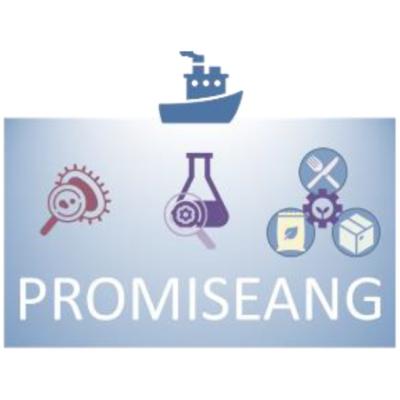
PROMISEANG
Alternative PROteins from MIcrobial fermentation of non-conventional SEA sources for Next-Generation food, feed and non-food bio-based applications

Alternative PROteins from MIcrobial fermentation of non-conventional SEA sources for Next-Generation food, feed and non-food bio-based applications
PROMISEANG aims to develop novel proteins from underexploited marine sources, including marine invertebrate and macroalgae discards and industrial biowaste and by-products, through fermentation using fungi, yeast or bacteria. This should generate new microbial protein biomass that meets market requirements for food, animal feed and non-food products such as pharmaceuticals and cosmetics.
A technically and economically viable biorefinery for microbial-based protein production will be demonstrated, allowing for high yields, reduced production times and costs, minimal environmental impact and increased availability of proteins in the EU. Taking a zero-waste approach, PROMISEANG will also recover and synthesise non-protein bio-compounds and molecules for food, feed and non-food applications.
PROMISEANG’s goal is to formulate zero-waste procedures for producing proteins via fermentation of non-conventional marine biomass. It then looks to use the proteins to create nutritious, high-value, sustainable food, feed and non-food products.
To this end, the project aims to:
understand the requirements for use of marine food biowaste and by-products as a fermentation substrate;
use biomass fermentation to produce sustainable, healthy, protein-rich microbial extracts;
confirm the nutritional value, safety and health benefits of the new food and feed products;
determine the sustainability of the new proteins compared to currently available alternatives;
foster development of the circular economy by recovering bioactive compounds from fermentation side streams;
maximise project impact through exploitation activities and dissemination of results to various audiences.
PROMISEANG is expected to:
identify underexploited or unexploited protein sources by determining the nutritional and metabolite profiles of over 30 types of marine biowaste and by-product;
extrapolate the findings to any type of food biowaste and by-product, contributing to the development of new bio-based protein fermentation processes and reducing food waste;
identify 10 marine food by-products that are suitable biomass fermentation substrates and validate and optimise two biomass fermentation processes;
increase the availability of high-quality proteins in the EU and reduce reliance on imports by mobilising protein streams from alternative sources and delivering five high-quality protein extracts;
create seven non-protein ingredients using residual biomass;
develop nutritious, healthy, safe and sustainable feed, food and non-food products by creating over 30 formulations and delivering at least four food, five feed and three non-food prototypes;
draw up six sets of guidelines for production of proteins and other biomolecules via biomass fermentation;
enhance the resilience, circularity and sustainability of bio-based marine protein industries.